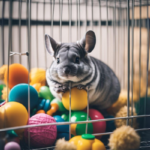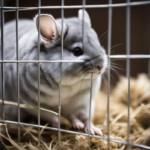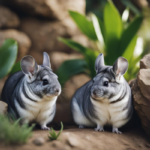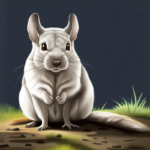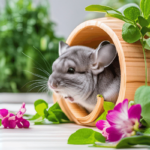Chinchillas are adorable little creatures, but their well-being requires vigilant care. Chinchilla Health is not just a matter of basic maintenance; it’s about understanding their unique needs and addressing potential issues before they escalate.
In this comprehensive guide, we’ll delve into various aspects of chinchilla health to ensure that these furry companions thrive under your care.
Chinchilla Health 101
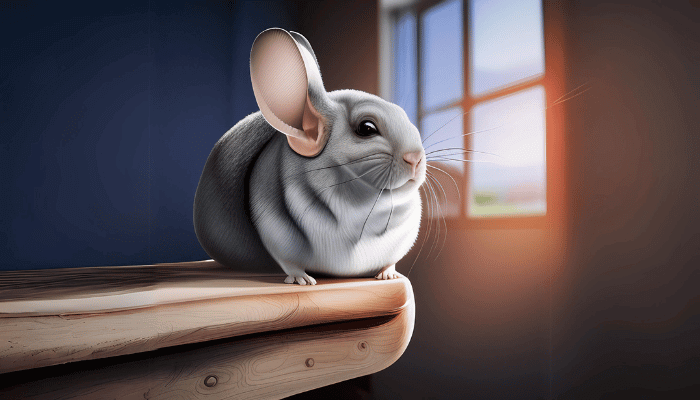
Keeping your chinchilla healthy requires a 3-pronged approach: proper care, a balanced diet, and regular vet checkups. Their diet should be based on high-quality chinchilla pellets, unlimited fresh hay, and limited treats.
Provide dust baths twice a week to keep their fur clean and healthy. Their cage should be spacious, cool, and have comfortable bedding. Schedule yearly vet checkups and be observant of any changes in behavior. With proper care, your chinchilla will live a long, happy, and playful life!
Understanding Chinchilla Nutrition
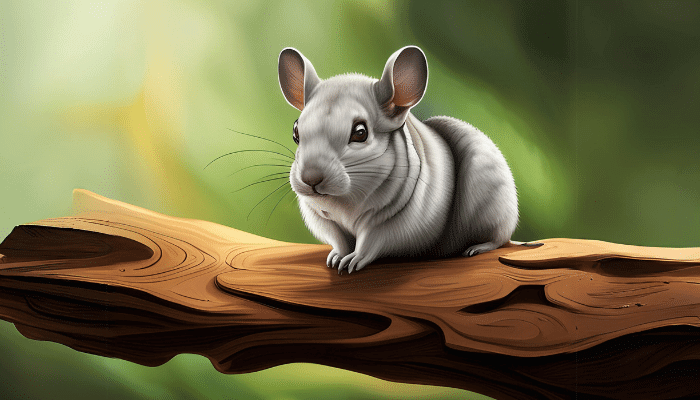
Balancing the Chinchilla Diet
Maintaining a healthy diet is crucial for Chinchilla Health. Ensure a balanced mix of high-quality pellets, hay, and fresh water. A diet rich in fiber promotes digestive health.
Avoiding Pitfalls
Hydration is key to Chinchilla Health. While chinchillas don’t drink much water, providing fresh water daily is crucial. Avoid water bottles with a ball-bearing sipper tube, as these can cause injury. Opt for a water bowl or a bottle with a metal sippy tube for safer hydration.
Exercise Extravaganza for Chinchilla Health
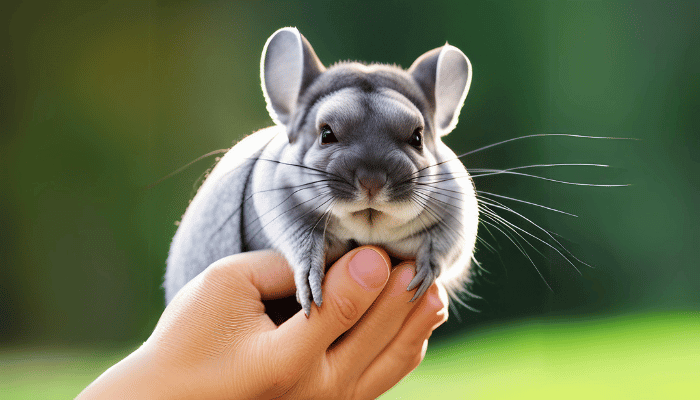
Chinchillas are energetic by nature, and regular exercise is vital. Ensure they have a spacious cage equipped with platforms and items for climbing and jumping. Create a safe play area outside the cage for supervised playtime. This not only supports physical health but also enhances their mental well-being.
The Importance of Playtime
Chinchillas are energetic creatures that need regular exercise. Set up a spacious play area with toys and tunnels to keep them active and mentally engaged.
Creating an Enriching Environment
Provide mentally stimulating activities like hiding treats or introducing new toys. Mental stimulation is as crucial as physical exercise for overall Chinchilla Health.
Maintaining Optimal Chinchilla Habitat

Ideal Cage Setup
A well-designed cage is fundamental to Chinchilla Health. Opt for multi-level cages with solid flooring to prevent injuries. Include cosy corners for napping and exercise wheels for additional stimulation.
Balancing Play and Rest
While play is crucial, Chinchillas also need sufficient rest. Ensure they have a quiet, comfortable space in their cage for relaxation.
Temperature Control
Chinchillas are sensitive to temperature changes. Maintain a cool environment, ideally between 60-70°F (15-21°C). Avoid direct sunlight and drafts to prevent stress and respiratory issues.
Grooming Practices for a Healthy Coat
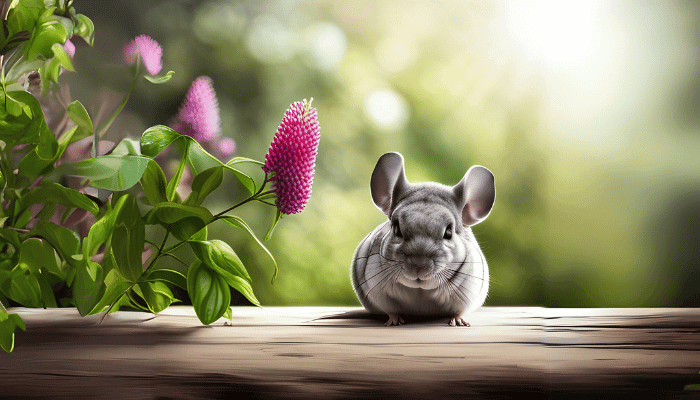
Dust Baths
Chinchillas are meticulous groomers, but they may need assistance. Dust baths are essential for maintaining their luxurious fur. Provide a dust bath two to three times a week, allowing your chinchilla to roll around and keep its coat clean and healthy.
Brushing Tips
Regular brushing helps prevent matting and removes loose fur. Use a gentle brush to keep their coat in pristine condition.
For different situations:
- After a bath: Brushing while the fur is slightly damp helps detangle and smooth the coat.
- Before exercise: A quick brushing can remove loose fur and debris that might irritate the skin during activity.
Common health problems in chinchillas
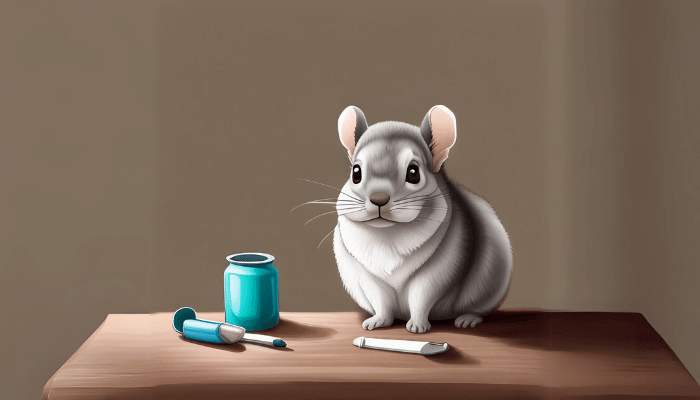
Certain health issues are more prevalent in chinchillas than others. Here are a few to be aware of:
Digestive Issues: Malocclusion (misaligned teeth), bloat, and gastrointestinal stasis (gut slowdown) are common problems, often linked to improper diet or stress.
Heatstroke: Chinchillas cannot tolerate high temperatures. Overheating can be fatal, so keeping their environment cool is crucial.
Skin Conditions: Fungal infections, fur loss, and scabbing can occur due to stress, poor hygiene, or parasites.
Urinary Tract Infections: UTIs are more common in females and can be caused by stress, improper cage hygiene, or underlying health issues.
Dental Problems: Malocclusion and overgrown teeth can cause pain and difficulty eating. Regular dental checks are essential.
Respiratory Problems: Ensure good ventilation and a clean environment to prevent respiratory issues. Watch for symptoms like sneezing or labored breathing.
If you notice any of these signs or suspect your chinchilla is unwell, consult a veterinarian specializing in exotic pets immediately. Early diagnosis and treatment can make a significant difference in their recovery.
The Playful Mind
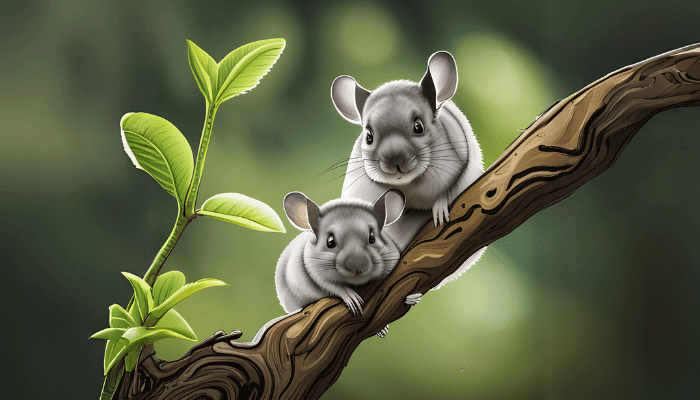
Toys and Activities
Explore a variety of toys and activities to keep your chinchilla engaged. From wooden blocks to hanging toys, the options are vast, contributing to a happy and mentally stimulated chinchilla.
Social Interaction
Chinchillas are social creatures, and their well-being thrives in the company of their kind. Consider having more than one chinchilla if possible, fostering a supportive and interactive environment.
Conclusion
In conclusion, maintaining your chinchilla’s health requires dedication and attention to detail. From a well-balanced diet to a stimulating environment, these charming creatures thrive when provided with the proper care.
Regular veterinary check-ups, a clean living space, and love are the key ingredients to a happy and healthy chinchilla. Now, armed with this knowledge, go ahead and ensure your furry friend lives its best life, full of health and happiness.
FAQs
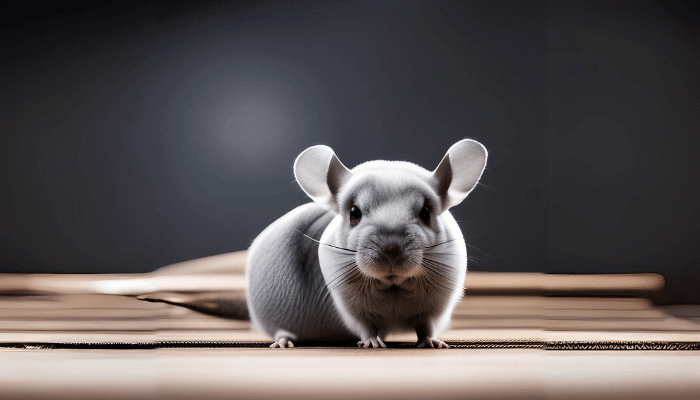
Can Chinchillas be housed together?
Yes, Chinchillas are social animals and generally enjoy the company of their kind. However, ensure proper introductions and monitor their interactions to prevent conflicts.
How do I know if my Chinchilla is sick?
Watch for signs like lethargy, changes in appetite, or fur abnormalities. If you notice any of these, consult a vet specializing in exotic pets immediately.
How often should I trim my Chinchilla’s nails?
Nail trimming depends on your Chinchilla’s activity level. Check their nails monthly and trim as needed to prevent overgrowth.
Do Chinchillas Need Veterinary Check-ups?
Absolutely. Regular vet check-ups are crucial for preventive care. Chinchillas are masters at hiding illness, so a professional eye is essential.
Can Chinchillas Overheat?
Yes, chinchillas are sensitive to high temperatures. Keep their environment cool, and provide shaded areas in their cage.
How can I tell if my chinchilla is stressed?
Signs of stress include overgrooming, lethargy, and changes in eating habits. Provide a quiet and safe environment to alleviate stress.
